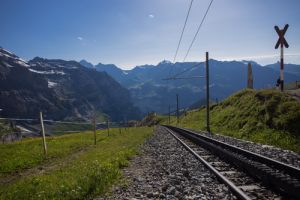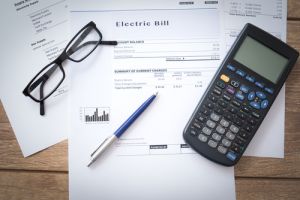Holiday Home Power
You may call it a bach, a crib or a beach house, but owning a holiday home is a dream for many Kiwi families. Unfortunately, powering the bach is no walk in the park: it is not as simple as just turning on the lights and turning them off again when you leave. Holiday homes can be subject to high electricity prices, especially in far-flung areas. This means that you could face a high power bill, even in the months you do not use your bach.
I don't use a lot of power at the bach – it should be cheap, right?
Despite not using a lot of energy at your bach, power can be expensive: if you are a low user at home, you might even find the annual electricity costs at your holiday home is more.
That is because in 2004, New Zealand introduced legislation to reward households that use a small amount of power – making it cheaper to power these homes. The low user tariff ensures there is a low fixed daily charge for households that use less than 8000 units of power a year (or less than 9000 units in the lower South Island). This tariff comes with a higher-than usual variable charge: this is the charge on the power that is actually used.
While most baches would be low users – as they are not used year-round – the legislation specifically excludes holiday homes. This means that retailers have no obligation to provide a low daily rate and standard rates can apply – sometimes as high as $2 a day – even if your power is turned off.
What about coverage – can I get electricity in my holiday home?

You might love toasting marshmallows by the fire, but power is considered essential for all but the hardiest of holiday makers. Each region in New Zealand has a local electricity lines company, also known as an electricity distribution company. If your bach is new or has never had electricity connected before, and you are not sure if it can get power or not, contact your local electricity distribution company. The Electricity Network Association has an interactive lines company map, if you're not sure who your lines company is.
If you are buying a holiday home where the power has been turned off for more than a year, most electricity retailers will require a check by an electrician before the power is reconnected.
While there is slightly less retail competition in far-flung holiday areas of New Zealand, most major electricity retail companies provide plans across the country. You may need to check directly with the power company to see if they cover your bach address.
Remember, while you can choose your electricity retailer, each area has only one lines company – so you might just have to put up with higher lines charges, or daily fixed charges, than in more built-up areas.
What are other charges holiday home owners should be aware of?

If you own a holiday home where the peak holiday time is in winter, you could also face extra monthly charges for putting the electricity network under pressure.
In 2012, Te Kuiti-based power supplier 'The Lines Company' introduced a new line charge for holiday homes, using "load control", which more than doubled some annual power bills. The company supplies power in King Country, including Ohakune and Turangi where there are many holiday homes.
The new line charge was calculated on peak-load kilowatt use and applied to each month throughout the year. This is because holiday homes put the system under pressure at peak times, especially school holidays in winter. The Lines Company said holiday homes with low total power use throughout the year did not contribute enough toward network maintenance, and permanent residents could be left paying large bills for network improvements they did not need.
The Electricity Authority investigated and, in a 2016 report, found there was no conclusive evidence that The Lines Company was over-using load control. However, it recommended the company gave customers access to better information about their bills and responded better to feedback.
The decision effectively cleared the way for other lines companies to charge higher prices on holiday homes but none are perceived to be following suit in New Zealand so far.
What is the best plan for a holiday home?
While holiday homes are a feature right across New Zealand (from baches in the north to cribs in the lower South Island), only one major electricity retailer actually advertises a plan specifically for baches.
Contact Energy's Bach Freedom Plan has no daily fixed charge so you "only pay for what you use" when you are at your holiday home.
The plan applies only to residential customers who have their primary residence with Contact as well. The $0 daily fixed charge also does not apply for customers in the central North Island who are supplied power from 'The Lines Company'. Those customers will still get a bill direct from The Lines Company for network and metering daily charges.
Contact also notes that while the Bach plan has no daily charge, it does have a higher variable charge. This means that it is not suitable for holiday homes that use a lot of electricity for things like heating a swimming pool or that are used a lot.
How do prices compare for holiday homes?
Here is a quick guide to what the power companies are offering and say about their power prices in three Kiwi holiday home areas – the Far North, Wyuna Bay in Coromandel and Wanaka. Information up to date at the time of publication, but check retailer websites for latest details.
Contact Energy
As outlined above, Contact Energy is the only major retailer that advertises a plan specifically for baches. It offers a $0 daily charge and a slightly higher unit rate – this unit rate is about 20 to 50 per cent higher than other companies, but it will still mean savings unless you use a lot of power at your holiday home. Contact Energy does not outline its coverage area.
Powershop
Powershop says it powers most of New Zealand, but it pays to ring to check coverage in your area. Holiday Homes connected with Powershop must use a standard plan. Powershop charges a modest daily charge and one of the lowest unit rates available. It offers what it calls "Powerpacks" – pre-purchased energy deals that customers can buy to receive lower rates or better discounts.
Electric Kiwi
Electric Kiwi does not supply to the area west of Taupo, the West Coast of the South Island and Southland. It only supplies homes with a smart meter. Holiday Homes connected with Electric Kiwi must use the standard plan. Electric Kiwi charges an average daily charge and unit rate when compared with other major retailers. It also offers a free "hour of power" where customers can nominate an off-peak power to receive free electricity.
Energy Online
Energy Online offers a standard plan for holiday homes. The prices vary greatly depending on which area your holiday home is: in the Far North, its daily charge is low compared with other retailers that have a daily charge, but the unit price is one of the highest. In the Coromandel, the daily charge is one of the highest and the unit rate is one of the highest, while in Wanaka the unit rate is one of the lowest but the unit rate is one of the highest. Energy Online says it covers most areas of New Zealand.
Flick Electric
Flick Electric says that it covers most of the North Island and parts of the South Island, including Central Canterbury, Queenstown, Wanaka and Dunedin. However, it does not cover the Far North and a number of other addresses. Holiday homes with Flick Electric are on a standard plan. Flick Electric passes on the wholesale price of electricity, so its unit rates change according to peak times, including summer and winter in Wanaka. Its daily charge was high for the Coromandel but low for Wanaka.
Pulse Energy
Holiday homes with Pulse Energy are on a standard plan. Pulse Energy's daily charge was one of the highest in all three areas but its unit price was lower than most other retailers. It charges a higher unit rate in Wanaka in winter. Pulse Energy does not outline on its website the areas it covers.
Meridian Energy
Meridian Energy offers a standard plan for holiday homes. Its daily charge and unit rate is average-to-high compared with other major retailers. Meridian Energy does not outline on its website the areas it covers.
Nova Energy
Nova Energy covers most of New Zealand, apart from Stewart Island. Holiday homes use a standard pricing plan with a couple of options to sign up to. Nova's daily charge is one of the lowest among retailers who charge a daily charge, and its unit rate is average. No pricing plan is available online for Coromandel.
Mercury
Mercury Energy offers holiday homes a standard plan. Its daily charge is one of the highest amongst major retailers and its unit price is average. No pricing plan is available online for Wanaka. Mercury Energy does not outline on its website the areas it covers.
Genesis Energy
Holiday homes with Genesis Energy are on a standard plan. It offers a low daily charge in the Far North and Coromandel, and average daily charge in Wanaka. Its unit price is about average compared with other major retailers. Genesis Energy does not outline on its website the areas it covers.
Trustpower
Trustpower does not outline on its website the areas it covers. Trustpower's website was temporarily unavailable for price estimates.
Compare Power Companies
Source: https://www.canstarblue.co.nz/energy/holiday-home-power-supply/
0 Response to "Holiday Home Power"
แสดงความคิดเห็น